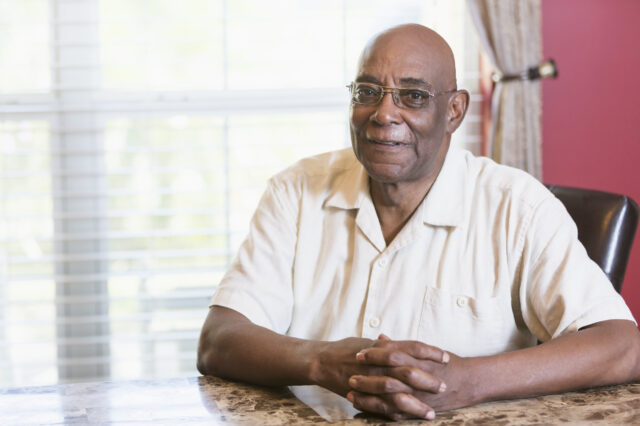Top signs of urological cancer in men
The information in this blog was taken from an audio interview with Robert Marino, M.D., a urologist with UF Health Jacksonville.

Update your location to show providers, locations, and services closest to you.
Testicular cancers can occur at any age but mainly affect young men between the ages of 20 and 39 and can develop in one or both testicles. Testicles, or testes, produce male hormones and sperm. These two egg-shaped male reproductive glands are located inside the scrotum.
There are two main types of testicular cancer: seminoma and nonseminoma. These cancers grow from the cells that create sperm, which are called germ cells.
A lump on the testicle or swelling may be the first signs of testicular cancer. Other symptoms include:

If you discover a lump, your doctor may order laboratory and diagnostic tests such as blood work, an ultrasound or a biopsy of tissue to diagnose testicular cancer. Most cases can be successfully treated, especially if found early.
State-of-the-art treatments at UF Health Jacksonville include minimally invasive surgery, the latest technology in radiotherapy and access to new cancer therapies and research.


The UF Health Jacksonville cancer program is accredited by the Commission on Cancer, a quality program of the American College of Surgeons.
The information in this blog was taken from an audio interview with Robert Marino, M.D., a urologist with UF Health Jacksonville.

The information in the blog was taken from an audio interview with K.C. Balaji, M.D., a urologist with UF Health Jacksonville.
